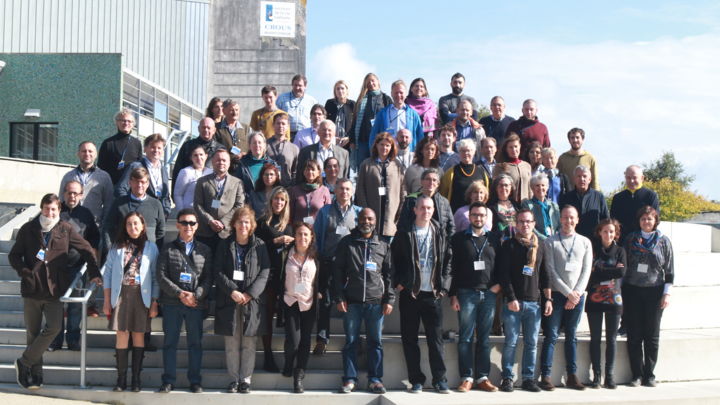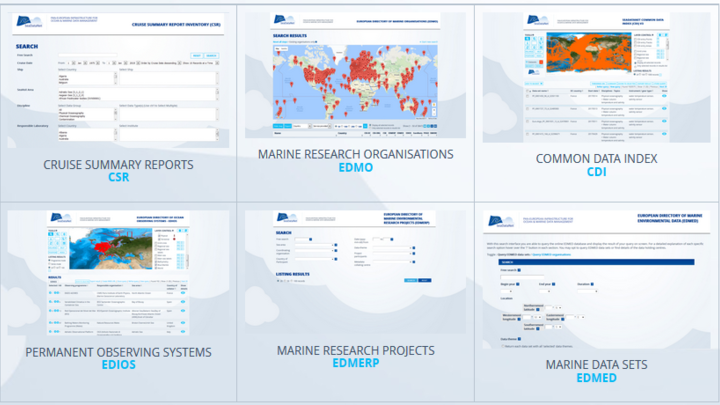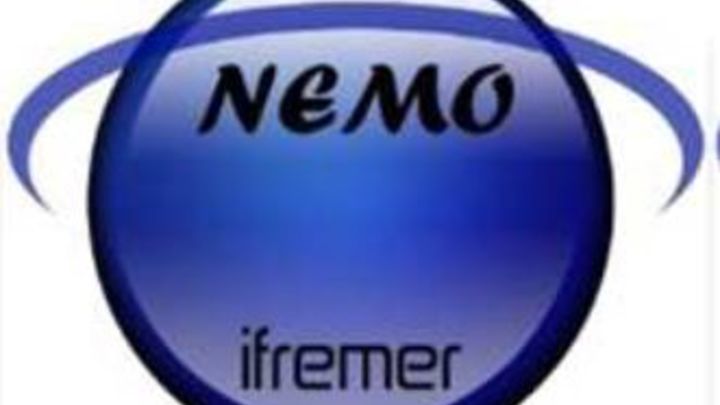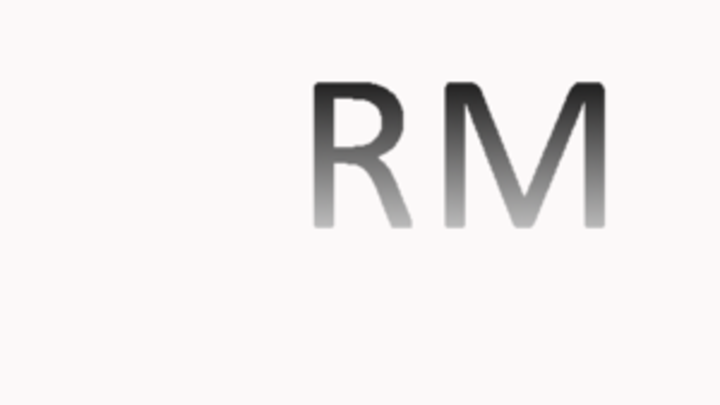EDMO, EDMED, EDMERP, CSR and EDIOS: How to contribute?
Governance
The maintenance of each of the directories (EDMO, EDMED, EDMERP, CSR, and EDIOS) - key service for unified access to data sets - is coordinated at a national level by the National Oceanographic Data Centre / Marine Data Centre, belonging to the SeaDataNet partnership. They collect references from institutes in their country and enter these into the directories for EDMO, EDMED, EDMERP, CSR, and EDIOS. The national directories are then compiled into pan-European directories, each of which is governed by a SeaDataNet partner.
Formats
For each of the directories a content model has been defined, based upon the ISO 19115 content model (where applicable). Considerable effort has been applied in harmonising all directories by using common vocabularies and mutually comparable XML schema's for exchange (XSD) between the national and pan-European directories. Detailed information about the formats and XML schema's can be found here.
Maintenance modalities
DOWNLOAD the USER MANUAL for updating metadata directories (EDMO, EDMED, EDMERP, CSR and EDIOS). In addition :
- For EDIOS, also read the EDIOS Guidance Notes
- For EDMED, also read the EDMED Guidance notes
Depending on the directory, the following options are provided:
- Maintenance via online Content Management System (CMS)
- XML export from a national partner to the pan-European directory:
- Using MIKADO software, provided by SeaDataNet, to enter and maintain local directories as sets of XML files
- Using the MIKADO software , to generate new and updated XML files from locally maintained metadatabases
- Using own software, written by partners, to generate new and updated XML files from locally maintained metadatabase
XML files, generated using the latest MIKADO software, will be valid and should parse to the associated Schema's. However partners not making use of MIKADO but generating XML entries for any of the SeaDataNet Directories should perform a validation before they can prepare and submit regular contributions. The Schema's for CSR include Schematron rules which allow to validate both the Syntax and the Semantics of CSR XML files, using an XML editor (e.g. Oxygene, XML Spy, ..) and the related Schema's, which can be found at the SeaDataNet portal in the Standards and Formats section. If ýou are online, the Schema's should be found by the editor automatically at the SeaDataNet namespace. For XML entries generated without MIKADO for EDMERP, EDMED and EDIOS a comparable approach can be applied. Those contributors can use MIKADO to check the Syntax validity. The same can be done by using an XML editor and the related Schema's. However work is still underway for including Schematron rules also in EDMERP, EDMED and EDIOS Schema's which will facilitate to validate also the Semantics next to the Syntax.
The following table gives the available maintenance modalities and governance per directory:
Directory + pan-European coordinator | Format info | Online CMS | XML exchange from national to pan-European level |
EDMED (coordinator BODC) | No | ||
EDMERP (coordinator MARIS) | |||
CSR (coordinator IFREMER) | |||
EDIOS (coordinator BODC) | No | ||
EDMO (coordinator MARIS) | No | ||
CDI (coordinator MARIS) | No |
*Note: Cruise Summary Reports (CSR) are the usual means for reporting on research vessel cruises. Traditionally, it is the Chief Scientist's obligation to submit a CSR to his/her National Oceanographic Data Centre (NODC) not later than two weeks after the cruise. Chief scientists arte advised to contact their NODC (see SeaDataNet partners page) to check whether they have to report directly to the SeaDataNet CSR online back-office or to their NODC, that will then transfer their CSR entries to SeaDataNet.






